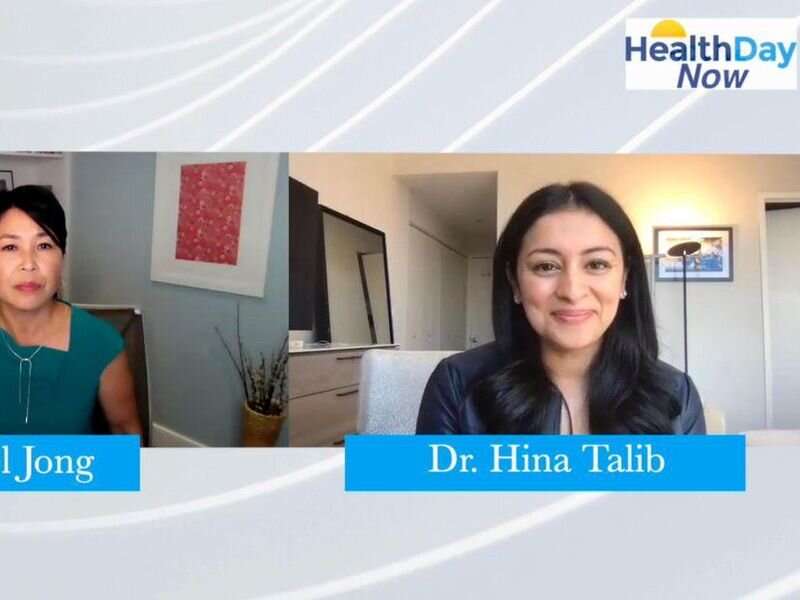
Many health experts hailed the recent approval of the Pfizer vaccine for those aged 12 to 15, but some parents have been hesitant to take their kids in for a shot.
“Parents naturally worry more about their children than they do about themselves—I think that’s parenting defined,” said Dr. Hina Talib, a pediatrician and adolescent health specialist at the Children’s Hospital at Montefiore, in New York City. “And their concerns unique to teens and tweens have been about safety and about puberty, about development, about things that sort of uniquely are in front of them.”
The major concerns Talib has heard from parents regard the safety of the vaccine, she said in a recent HealthDay Now interview.
But Talib stressed that, while expedited, the vaccine clinical trials never cut corners when it came to testing safety and effectiveness.
“Rest assured there were no shortcuts taken in how these trials were conducted. As such, we’re just so happy that we were able to see such efficacy,” Talib said. “They actually work even better in tweens and teens than they do in adults. We can feel good that there is good data to support that this is a safe option.”
Side effects from vaccines tend to occur within six weeks, and “we have enough data to cover that timeframe,” Talib said.
Tens of millions of people have now gotten the Pfizer vaccine, providing a growing real-world group in which any severe safety problems would have already become apparent. And that’s not to mention the millions—maybe billions—who have been inoculated with other vaccines.
“We get a little bit of comfort looking at all of the other vaccines that we have and knowing that most of the side effects when they arise come quicker and within that [six week] timeframe,” Talib said.
Far less risky than COVID
Some parents also wonder whether it would be better to just let their kids get COVID-19 rather than a vaccine, much like families did with chickenpox before the development of the varicella zoster vaccine.
That’s not a good idea, given that kids can also develop COVID-19 long-haul symptoms, require hospitalization and risk death from the infection, Talib said.
“About 3.9 million children have had COVID-19 infection, and thousands have been hospitalized and hundreds have died,” Talib said.
“Children and teens should not be an afterthought. I think their health matters,” she continued. “I know a lot of people would say ‘Hey, but the risk is low.’ While that is true, it does not mean no risk. As a health advocate, if we have a safe and effective option to prevent this infection, by all means I encourage my patients and the teens I know in my life who are more recently eligible to go ahead and accept this vaccine.”
Another worry comes from bogus online rumors that the messenger RNA vaccines developed by Pfizer and Moderna can alter a child’s DNA, and that they could pass that DNA down to their own kids.
“We have to look at the science, and not science fiction,” Talib said. “These vaccines do not alter DNA, and they will not alter the DNA of future children.”
The vaccines work by delivering messenger RNA into your cells, prompting them to produce replicas of the “spike protein” that the coronavirus uses to latch onto and infect cells. The immune system recognizes these proteins as foreign and mounts a response to them, in essence teaching the body how to fight off a future COVID-19 infection.
Human cells already are exposed to hundreds of thousands of pieces of messenger RNA constantly, receiving orders from these genetic blueprints to produce chemicals and other substances that the body needs.
RNA naturally degrades and disappears from the body after it serves its purpose; in fact, the fragility of messenger RNA is why the vaccines must be kept in ultra-cold freezers and handled delicately prior to inoculation.
“It’s like a code, much like a Snapchat,” Talib said. “It just sort of comes in, it does its job, and then it disappears, moving out of your body within a couple of days. It doesn’t alter anything, and it doesn’t stay with you for this life and for future generations.”
Infertility claims unwarranted
Another rumor has held that the vaccine can cause infertility because the spike protein it prompts the body to produce shares some amino acids with synectin, a protein found in the placenta, said Dr. Jill Foster, director of pediatric infectious diseases and immunology at the University of Minnesota’s Medical School.
But all proteins are made up of chains of amino acids, and it’s natural that they have some amino acids in common while having completely different effects on the body, Foster said.
“What I say to people, that’s like me and you both having a seven in our phone number,” Foster said. “You’re never going to guess the rest of the phone number. You could just try dialing seven, you’re not going to get either of us. Just because we both have a seven in our phone number, does that mean we have the same phone number or live in the same house?”
Parents should also be reassured by the long list of previous vaccines that have never affected human fertility, Talib said.
“There’s no biological mechanism [by which] this would come to pass and be a side effect or a long-term effect that we need to worry about,” Talib said.
Alan Santee, a high school freshman from Massachusetts, told HealthDay Now he was eager to get the vaccine, to protect himself and to play a part in ending the pandemic.
“It sort of aggravates me when I see my friends who just don’t want the vaccine because they just don’t care. They don’t feel like COVID is going to harm them,” Santee said.
Talib suggested that parents and kids use their family doctor or pediatrician as an intermediary, to help iron out any disagreements or misunderstandings they have.
Source: Read Full Article
